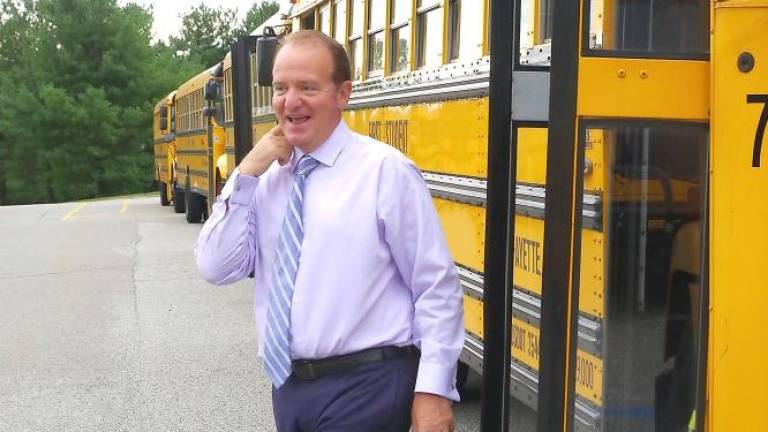Teacher salaries, special education, and kindergarten loom large in school budget
Vernon. An exponential increase in cocurricular stipends may stem from not doing detention in 2020-21.

The Vernon school board on Feb. 11 looked at about $39.4 million worth of expenses in the district’s 2021-22 budget.
They looked at athletics, cocurricular programs, textbooks, and salaries, with salaries taking up the largest chunk of the budget.
Interim business administrator Donna Risse said two retirements are coming up in the physical education department, but only one of the teachers will be replaced. She also said there will be four new teachers overall.
Earlier in the evening, the school board and administration discussed the possibility there will be an abnormally large kindergarten class in 2021-22. Risse said that has not been factored into the budget so far.
Assistant superintendent Charles McKay said the district will use retirees and transfers to make things work. Any increase in the kindergarten may be offset by a decrease in first grade, he said.
“Let’s look at the retirees and go from there,” McKay said. “There’s a lot we don’t know, and this can’t be a finished product right now.
Overall, instructional salaries are expected to go up about 1.9 percent.
Last June, the district had 316 full-time staff members and now has 287. McKay said most of the retirees had been earning around $100,000 annually, so their retirement saved the district $2.7 million. The year before, the district had 338 full-time staff members.
“That’s really where the numbers are,” McKay said. “I’m not saying we can do that again, but I just want you to have faith when we start to fill out personnel, it’s about taking our certifications, looking at what we have, putting the right people in the right places.”
Special education salaries also drive a significant amount of money in the budget. Superintendent Karen D’Avino said the district has three self-contained programs: Behavioral Disabled, Autistic, and Learning, Language Disabled. Regulations forbid staff cuts in these programs.
“It doesn’t matter how many retire,” D’Avino said. “We always need special ed teachers.”
There will also be some non-instructional salary increases if, as expected, Walnut Ridge operates again as a school.
Risse said cocurricular programs are 28.66 percent of the budget. The school has looked at decreasing this portion, but since it is salary-driven, increases can be expected, she said.
At the high school, there were $255,000 in stipends for cocurricular programs and $405,000 in stipends budgeted toward athletics.
D’Avino said part of the cocurricular increase could stem from the district not doing detention in 2020-21.
At Glen Meadow, Risse budgeted $55,000 for cocurricular stipends and $46,000 for athletic stipends. Lounsberry Hollow was budgeted $30,000 for cocurricular stipends.
Risse said athletics went up only 1.8 percent but cocurricular went up exponentially.
Technology’s importance grows
Director of technology Matt Shea asked for a 10 to 11 percent increase in the technology budget.
Under technology, Risse budgeted about $106,000 for computer equipment, such as classroom document cameras, and upgrades to Chromebooks and computer labs, telecommunication, network, and cell phones for the district.
She said $70,000 for distance learning was paid out of the CARES Act.
“I can’t stress enough the way teaching will be delivered,” D’Avino said. “We don’t know, but I really think virtual and/or hybrid will be embraced by New Jersey. When we talk about things like cameras and microphones, those items will no longer be an option. They’ll be a necessity.”
“I really think virtual and/or hybrid will be embraced by New Jersey. When we talk about thinks like cameras and microphones, those items will no longer be an option. They’ll be a necessity.” Superintendent Karen D’Avino